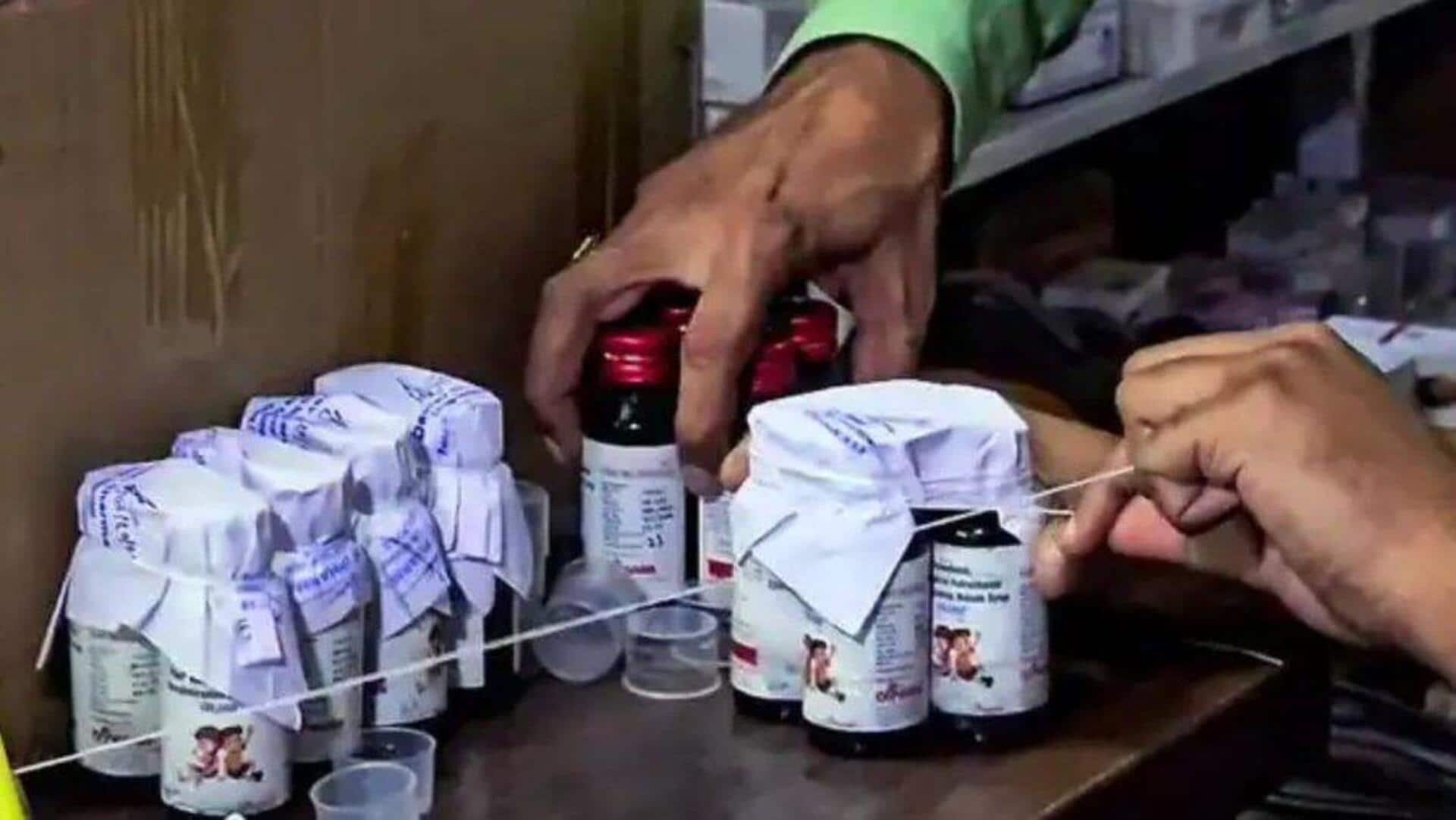
After cough syrup deaths, India launches digital tracker for ingredients
What's the story
India's drug regulator, the Central Drugs Standard Control Organisation (CDSCO), has introduced a digital monitoring system to track high-risk solvents used in cough syrups. The move comes after several incidents of diethylene glycol (DEG) contamination in cough syrups, which raised serious safety concerns. The new system will monitor the supply chain, quality, and testing of these solvents through the Online National Drug Licensing System (ONDLS) portal.
Solvent tracking
List of high-risk solvents identified
The circular lists high-risk solvents such as glycerin, propylene glycol, sorbitol, polyethylene glycol, hydrogenated starch hydrolysate, maltitol, and ethyl alcohol, among others. These solvents have been linked to contamination incidents when mixed with toxic industrial chemicals like diethylene glycol. Under the new system, all pharmaceutical-grade solvent manufacturers are required to obtain manufacturing licenses through the ONDLS portal and upload real-time information about every batch produced.
Safety measures
Batch-wise information and testing mandated
The CDSCO's directive also mandates manufacturers to upload detailed batch-wise information, including certificates of analysis and details of vendors. State drug controllers are now responsible for ensuring no batch is released or sold without testing and approval. The new digital tracking framework is aimed at improving transparency and traceability in the manufacturing chain, thus reducing the risk of adulteration with toxic chemicals.
Health impact
Preventing contamination incidents
The CDSCO's move comes after contaminated cough syrups led to the deaths of almost 30 children in Madhya Pradesh and Rajasthan. They died after ingesting Sresan Pharma's Coldrif, which tested positive for diethylene glycol in concentrations over 500 times the permitted limit. This week, the World Health Organization urged India to do more in halting sales of toxic cough syrup. "They have made some strides," but no such rule exists for syrups sold locally, the WHO flagged.